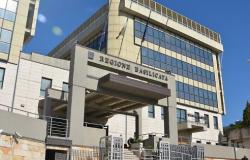People who are sensitive and attentive to what is happening around them have known this for a long time: for every child in the G7 countries who huffs and puffs in the morning to go to school, there are at least a hundred in developing countries who dream of having a school so close to their home that they can go there every day without walking for miles. education and africa and much more we have already spoken in the past with Laura Frigenti, general director of the Global Partnership for Education (GPE), the international financing platform dedicated to strengthening education systems in low-income countries. Now we met her again on the occasion of the Meeting of Education Ministers which was held in Trieste from 27 to 29 June 2024, a meeting to put the school at the centre of growth and common development, and which was also attended by many international organisations competent in the field of Education. Among the speakers there was obviously also the director Frigenti, with whom this time we focused in particular on the issue education and gender equalityas this year she was also appointed as a member of the GEAC, the Gender Equality Advisory Council, the independent international advisory council of experts on gender equality. Here’s what she taught us.
She is keen to reiterate that education in low-income countries is considered the key to real transformation, and the driving force for the economy and peace: let’s explain why.
Everything that happens in a society is because people make it happen. For this to happen, these individuals need to have the skills, the abilities to contribute to the economy and the progress of society. These skills are only obtained through education. Any investment in infrastructure and productive sectors then needs the people who can implement them. As for peace and stability within society, we know that large inequalities are a source of great instability. Societies where people feel they have opportunities for growth, for improvement, where they have prospects and are more satisfied, are generally more stable and rarely give rise to destabilizing processes. The correlation between investing in education and creating more stable societies is therefore very, very strong.
Let’s talk about gender inequality in education: even Italy, until a couple of generations ago, was a country where it was preferable to invest in the male child, sending him to study…
Luckily in Italy this doesn’t happen anymore, we have compulsory education for everyone, and today women graduates outnumber men graduates, even if this doesn’t correspond with the data in the labor field. In any case, we have at least achieved equality on paper. There are many low-income countries where we are still at that point. It’s not necessarily out of malice, sometimes families are forced to make dramatic choices because they don’t have the resources to send all their children to school, or they need some of them to contribute to the family’s support by starting to work. But in any case, the reasoning remains the same: if there are the resources to send only one of the three children to school, it is preferable to send the male, instead of the most gifted, regardless of gender. One of the points on which we at GPE believe we work quite well with governments is that what counts is the perception that society, the community, and the family have of the value of education. So that’s where we need to start to dismantle the negative assumptions that force families to make a difficult decision. Let’s hope that this happens less and less, that we think more and more in terms of opportunities, not gender, giving more to the best students.
Should we increase education to increase gender equality, or will gender equality lead to more education?
Investing in girls has a number of positive effects on society. First, there is a greater likelihood that if mothers attend school, their children will too. Then it is much more likely that health practices within the family will be reflected in the entire community, women who have attended school have their children vaccinated, feed them better, are able to understand the risks of drinking unsafe water. We need to invest so that a girl has the right to a twelve-year education.
You work a lot in the field: when you are a speaker at events like the one in Trieste, what is the biggest difficulty you encounter in explaining these things to people who only have a theoretical idea of them?
I must say that in all the meetings I attend I never find anyone who denies the importance of investing in education; what I find wrong is the perception that there are other more “global” crises, education is perceived as something that, yes, limits the opportunity of the individual, but is not comparable, for example, to epidemics or food security, climate change. I hear people say that it is terrible that these children cannot go to school, with all the consequences that come from it, but that it is not a problem for global society. This is wrong. Therefore, when governments have to make choices within limited resources, to be allocated to the countries of the Global South, they favor other things that are perceived as “more global”. This is why I always reiterate the correlation between education and the growth of society, between education and stability.
The world is going through epochal changes in education and the skills that will be needed for work in the future. How do you, in the low-income countries where you bring education, take this into account?
We take it into account, of course, but it is a sore point. Let me explain: these countries have to face a double battle: on the one hand we are still reasoning about the fact that six out of ten children finish the fourth grade and still do not know how to read and write a simple sentence: imagine thinking about talking about artificial intelligence and the jobs of the future. We need a rapid transformation of school programs, which can allow these young people to access decent, better jobs, and investments of 20-25,000 dollars per student per year, otherwise in the Global South they will be left doing multiplication tables and writing the alphabet, while here AI is taught, it would drastically increase instability in the world. It is a major and difficult challenge, especially because of the shortage of teachers. They should already be retrained, but there are countries in which a single teacher has classes with a hundred students. Even if he were the best in the world, with a hundred students you have little to teach.
Is it possible that in the richest countries, someone still hopes to keep some population ignorant in order to exploit them as cheap labor?
The general attitude towards education in the Global South can be explained by two wishes. On the one hand, there is certainly fear of the uncontrolled flow of migrants who arrive without professional skills, who then have great difficulty entering the world of work unless it is one of exploitation. Therefore, remaining aware of the demographic trends in European countries, it is desirable to have a controlled management of people who, when they arrive, have the possibility of finding a job. On the other hand, by increasing professional skills, local growth processes are generated which make emigration less necessary.
What do we hope to achieve from meetings like this one in Trieste?
I am already very happy with two things achieved by the Italian G7 presidency in Puglia. First of all, the attention to Africa, and in general to the Global South, the criterion of establishing a different level of partnership. Second, the fact that this partnership should be structured in a more collaborative, less “paternalistic” way, if I may use the term. Now I hope that more sectoral meetings will concretize this message in targeted strategies. The education sector, globally, is experiencing a huge financial crisis at the moment: I hope that a call will emerge for the need for investments not only by the Global North, but also by the countries to which they are destined, so that they invest their budgets in the education sector. Because the problem starts there: education is an expensive sector, highly labor-intensive, and the majority of the costs must be borne by the countries, not depend only on external interventions.






